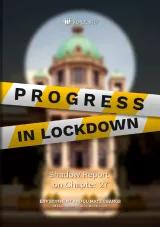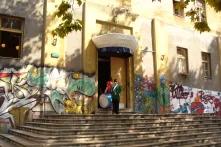The European Green Deal
The EU's Flagship Climate Change Strategy
The European Green Deal is an EU development strategy for the 21st century. Its central concern is the environment and climate change - how to make the EU's economy develop in a climate-friendly way. The Commission defines it as “a new growth strategy that aims to transform the EU into a fair and prosperous society, with a modern, resource-efficient and competitive economy where there are no net emissions of greenhouse gases in 2050 and where economic growth is decoupled from resource use”. The Commission promises “mainstreaming sustainability” into all policies, by adopting “a green oath: ‘do no harm’”.
Some of the main targets set by the European Green Deal concern greenhouse gas emissions (GHG). The EU’s climate ambition for 2030, with a 50-55% cut in greenhouse gas emissions GHG, is to replace the current 40% objective. The EU is to become climate neutral by 2050, which is the overarching objective of the European Green Deal.
This means that all policies at the EU level will have to be viewed through the prism of sustainability. How much natural resources are necessary? Could they be used more efficiently? What are the pollution levels stemming from planned activities? Can they be reduced? How are activities affecting communities and individuals? Are the cleaner new energy technologies we wish to promote leaving someone behind? What will happen to those EU citizens working in the existing energy industry? These are just some of the questions that the European Green Deal is set to help answer.
Serbia, Montenegro and Kosovo are not EU members, but this new framework concerns them as well. EU diplomatic efforts will be mobilized in support of the European Green Deal. In October 2020, on the occasion of the Berlin Process summit in Sofia, the governments of the Western Balkans 6 committed to the "Green Agenda for the Western Balkans" as a concrete plan to expand the European Green Deal to Southeast Europe.
Below is a selection of articles and analyses which elaborate some of the key elements of the European Green Deal in the regional context of the Western Balkans.








